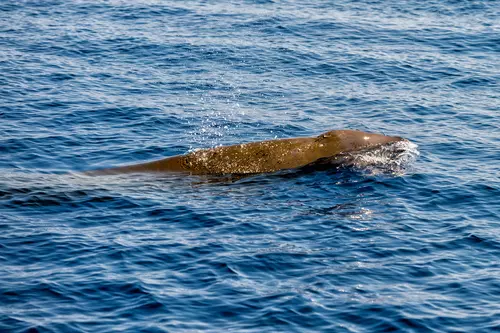
Rarely seen deep sea whales spotted near shore in the Netherlands
text_fieldsBeaked whales, commonly found in deep seas, were spotted near the shore in the Netherlands. They are rarely ever spotted by humans living on land due to their choice of habitat.
Three beaked whales were spotted close to the beach on July 19, said SOS Dolphin Foundation. The NGO said the sighting is worrying because these whales will find it hard to survive in the shallow waters of the North Sea.
Locals formed a human barricade to keep the whales away from the beach and prevented them from getting stranded, reported Newsweek.
The structure of the North Sea's floor causes beaked whales to get stranded and die. Whales also get confused in shallower waters as they are used to deep canyons under the sea. Loud noises may be causing mass strandings as the whales get startled by such sounds and ascend quickly from the deep sea to the surface.
The North Sea has a long history of beaked whale strandings due to the shape of the seafloor. A similar event took place in 2010 when a group of beaked whales was sent back to the sea. But they ended up stranded on the other sides of the English Channel.
"The waters off Norway and Scotland are very deep, getting shallower as you go south. If you were to design a whale trap for beaked whales, the North Sea would be perfect," said Rob Deaville, project manager of the Zoological Society of London's Cetacean Strandings Investigation Programme (CSIP).
Beaked whales are known for being elusive. They are a diverse group of 24 species that can grow up to 42 feet in length. Their common hunting ground is deeper seas as they can dive to almost 9,000 feet. They can also hold their breath for over four hours.
Deaville noted that many beaked whales had washed up ashore after dying from manmade factors like plastic pollution and noise pollution.
According to CSIP, many marine animals in the cetacean aquatic mammals like whales, dolphins, and porpoises have been getting stranded on the shores of the UK for centuries. Since 1990, over 17,850 of these animals have been collected after being stranded.























